

 |  |
America’s Stonehenge (Mystery Hill)
Salem, New Hampshire
United States
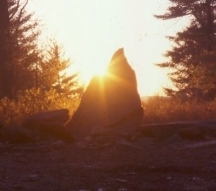
WHILE THE FIRST MENTION of the site was in 1907 and no pre-Columbian artifacts have been found, some still believe that the site is over 4000 years old. On the equinoxes and solstices, people flock to the area to watch the sun rise and fall over the huge chunks of granite, deciding for themselves whether or not they're standing amid relics of prehistory.
Calanais Standing Stones
Callanish, Isle of Lewis
The Outer Hebrides
Scotland
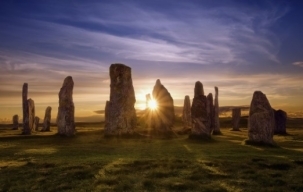
ERECTED BETWEEN 2900 and 2600 BC, the Callandish (or Calanais) Stones are an arrangement of standing stones placed in a cruciform pattern with a central stone circle or tomb. They’re on a low ridge above the waters of Loch Roag with the hills of Great Bernera behind them.
Ring of Brodgar
The Orkneys
Scotland

Erected between 2500 BC and 2000 BC, the Ring of Brodgar stands on a small isthmus between the Lochs of Stenness and Harray.
Machrie Moor Stone Circles
Machrie
Isle of Aaran
Scotland
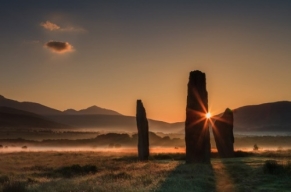
Erected around 2030 BC, the Machrie Moor Stone Circles is a collective name for six circles formed of granite boulders, while others are built of tall red sandstone pillars.
Clava Cairns Stones
The Highlands
Scotland
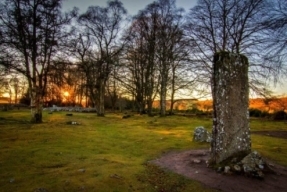
Around 4000 years old, the Clava Cairns Stones are a cemetery complex of passage graves; ring cairns, kerb cairns, and standing stones.
Stone of Scone (Stone of Destiny)
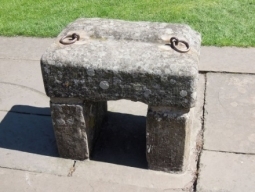
ACCORDING TO ONE CELTIC legend, the stone was once the pillow upon which the patriarch Jacob rested at Bethel when he beheld the visions of angels. From the Holy Land, it purportedly traveled to Egypt, Sicily, and Spain and reached Ireland about 700 BC to be set upon the hill of Tara, where the ancient kings of Ireland were crowned. Then it was taken by the Celtic Scots who invaded and occupied Scotland. Around 840 AC, it was taken by Kenneth MacAlpin to the village of Scone.
Stone of Destiny
Coronation Chair
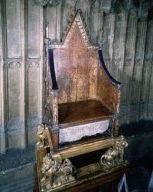
The Coronation Chair was made by order of King Edward I to enclose the famous Stone of Scone, which he brought from Scotland to England in 1296, where he placed it in the care of the Abbot of Westminster.
The MacLomain Series
End of an Era

A Scot’s Pledge (Tiernan’s Story)

A Scot’s Devotion (Aidan's Story)

A Scot’s Resolve (Cray's Story)

A Scot’s Favor (Ethyn's Story)

A Scot’s Retribution (Marek's Story)
